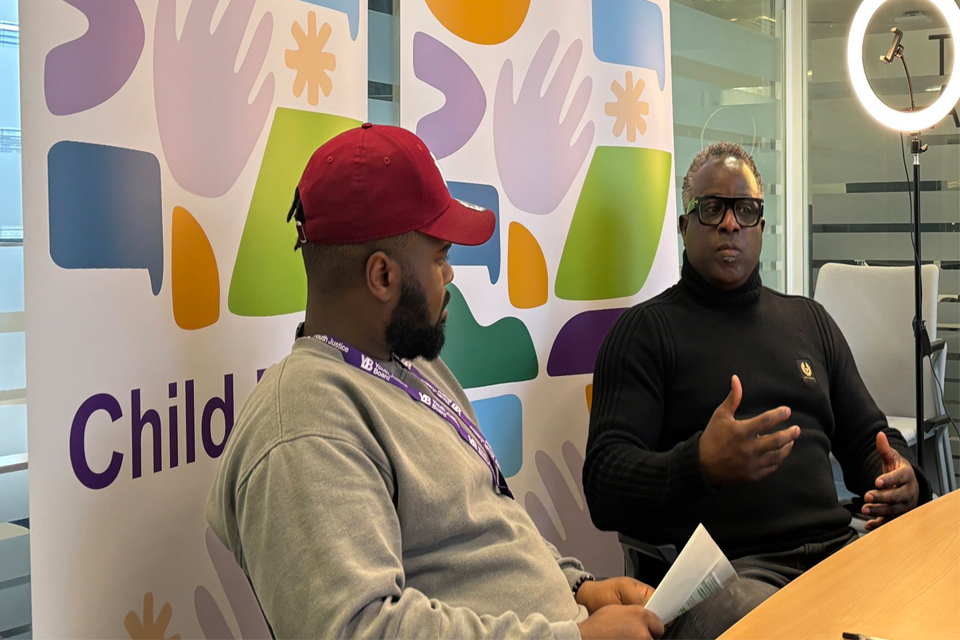I moved from Brooklyn New York when I was 11 years old to Lewisham in South London. My mum was British and after she had my youngest brother decided she wanted us to move back to the UK. The first things I noticed were the differences in language, customs, and culture. My mother's family heritage is from Jamaica and Cuba, and I was beginning to recognise the links between my identity and my Caribbean roots.
I wanted to understand the history of the UK and how it's applied to my identity. What was interesting, is that Black British history was not covered in school in the same way I learnt about Black American history during my time at elementary school in the US. Some people don't realise that Black British history is British history - it's for everyone. It helps us to understand our past and recognise the impact of inequality and inequity, and to understand that children and young adults should be able to show up as their best selves without discrimination.
At home, my family would often watch the news together and we would discuss our opinions on things that were happening in the world and what needed to change to make things better and fairer. I loved this because when adults where exchanging ideas, my siblings and I were included. I suppose this is where my interest in social action and community stems from. Recognising that our ideas and dreams were just a valid as any adult's. These interests led to me campaigning to become elected as the Young Mayor of Lewisham at just 16, and taking a greater role and a greater stake in my community.
As an adult, I enjoyed youth work; in fact, it became my passion. I was so motivated by how you could bring change for children and young adults. I wanted to inspire them to better understand their heritage and get a real sense of who they are. As a Black man, the importance of role models is important to me. For professionals in youth justice, those of us from Black communities, it's vital to show up and show who we are and show our heritage, so children feel represented. It is also about occupying space and giving back to a society which at times may not have always been inclusive but has benefited from the duty and determination of people like the Windrush generation.
Becoming a YJB Board member
This is what brought me to the Youth Justice Board. I wanted to be in spaces and places where decisions are being made and to use my identity and lived experiences to bring a greater impact and influence system change. I use my position on the Board as an opportunity to be reflective and demonstrate how we as professionals must show up for children. This coupled with still being an active Youth Worker is one way of staying grounded and remembering the best solutions come from collective and informed decision making.
Just last week I recorded a podcast for the YJB with Ricky Otto from Walsall. He works with children in custody and spoke at the Youth Justice Leaders' Summit earlier this year. That conversation with him about his journey showed me the richness and importance of telling our stories, and reflected how through telling our stories we can create change within the youth justice system. Speaking to Ricky, I was inspired by his pride and his sense of purpose. The importance to him of fatherhood, and what this means to boys in custody was inspirational. He represents the impact and meaning of showing up in the lives of these children. If you get time, please do listen to the podcast.

Jacob Sakil and Ricky Otto recording a podcast
The statistics on overrepresentation of Black and Mixed heritage boys tell me that they are not being seen and not being supported. It is so important to allow the conversation of custody to widen and include a renewed focus on rehabilitation and prevention. We need to look towards their futures, their opportunities and at their potential. These boys are more than just numbers.
Black History Month, of all the months, is a great chance to reignite the conversation about what change looks like in the UK. It serves as an annual opportunity to deepen the impact of reflection and inform how we go forward.
I am proud to be a Black man. I am proud to work with children and young adults, and I am proud to be a YJB Board member. As part of my role on the Board, I am the lead for Equity Diversity and Inclusion. I am showing up for Black and Mixed heritage boys and girls who are overrepresented in the justice system and working to bring change. I am proud to do this because who we are, our identity and our heritage should and does reflect the richness and diversity of the communities we serve.






